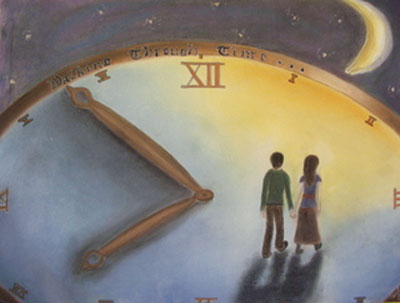All Nonfiction
- Bullying
- Books
- Academic
- Author Interviews
- Celebrity interviews
- College Articles
- College Essays
- Educator of the Year
- Heroes
- Interviews
- Memoir
- Personal Experience
- Sports
- Travel & Culture
All Opinions
- Bullying
- Current Events / Politics
- Discrimination
- Drugs / Alcohol / Smoking
- Entertainment / Celebrities
- Environment
- Love / Relationships
- Movies / Music / TV
- Pop Culture / Trends
- School / College
- Social Issues / Civics
- Spirituality / Religion
- Sports / Hobbies
All Hot Topics
- Bullying
- Community Service
- Environment
- Health
- Letters to the Editor
- Pride & Prejudice
- What Matters
- Back
Summer Guide
- Program Links
- Program Reviews
- Back
College Guide
- College Links
- College Reviews
- College Essays
- College Articles
- Back
The Red Button
Exhausted, I glanced at the tall stack of papers sitting on my desk and sighed. I'd been working away at it—or trying, in any case—for the better part of two hours, and yet, as I depressingly realized, hadn't made any considerable progress. I tried to determine the reason for my distraction, but came away empty handed. After all, my tenure as President of the United States had been especially successful thus far; with the perfection of cold fusion by a group of elite researchers from institutions across the country, we'd essentially managed to solve multiple global crises in one go. My approval rating only reflected my success, and, as I proudly reminded myself, was higher than that of any previous President. Giving up, I sighed again and turned back to the fifty-third document from the stack.
As I did, though, something caught my eye, something to which I'd never really given much thought before. A small nondescript red button, unlabeled and encased in glass, sat on my desk. Thinking back, I realized that while it had been there since the beginning of my term, I certainly hadn't ever been briefed as to what it did. Intrigued, I decided to lift the glass and press the button.
There weren't any drastic effects; to my relief, no voice announced that we'd attacked another country. Thinking that the button may have been the joke of some previous President with an odd sense of humor, I looked around my office. While it didn't look hugely different—it was, after all, the same office—I did notice a few minor changes. The rugs and couches were plusher, for example, and a new document was framed on the wall. In addition, there was a large screen directly facing me. I looked at the screen more closely, and found that it was a television, muted but tuned to CNN. Starting to read the captions, I found that a "Supreme Ruler of the United States" had just sent a dozen political dissidents to a labor camp, apparently "for their own good." I wondered aloud, asking "Supreme Ruler? Who's that?" to nobody in particular, when a Secret Service agent who I hadn't previously noticed laughed and told me, "Good one, sir."
Confused, I continued to look at the television. It wasn't until I noticed the date—June 7, 2025, which at first seemed fine but, as I soon realized, was exactly five years later than what I last remembered—that reality started to dawn on me, though I desperately hoped that I was mistaken, and that this whole thing was some kind of practical joke.
I decided to look at the newly-framed document on the wall. I was horrified by what I read; essentially, it said that I no longer felt the American people fit to govern themselves, and so I had decided to completely scrap the representative democracy system, void the Constitution, and declare myself "Supreme Ruler of the United States."
I sat back down at the desk and thought about the implications of what I'd just seen. I couldn't believe I would have signed such a thing, but it was hard to argue with the framed evidence. Though I desperately wanted to find out why I would do such a thing, I couldn't stand being in this dystopian future any longer. Determined to keep it from happening, I sat back down at the desk and pressed the red button again, hoping that it would take me back to the time from which I'd come. I found, to my relief, that this was the case—at least, it seemed to be—and looked around for confirmation. When I was finally adequately satisfied, I turned to the document on my desk, apparently a form for a Senator from Iowa with whom I'd disagreed several times. I couldn't hold this against him, though, and so I signed the form. I started to place it aside, but, realizing that it looked strangely familiar, started to actually read it. I couldn't believe what I’d just signed.

Similar Articles
JOIN THE DISCUSSION
This article has 0 comments.
